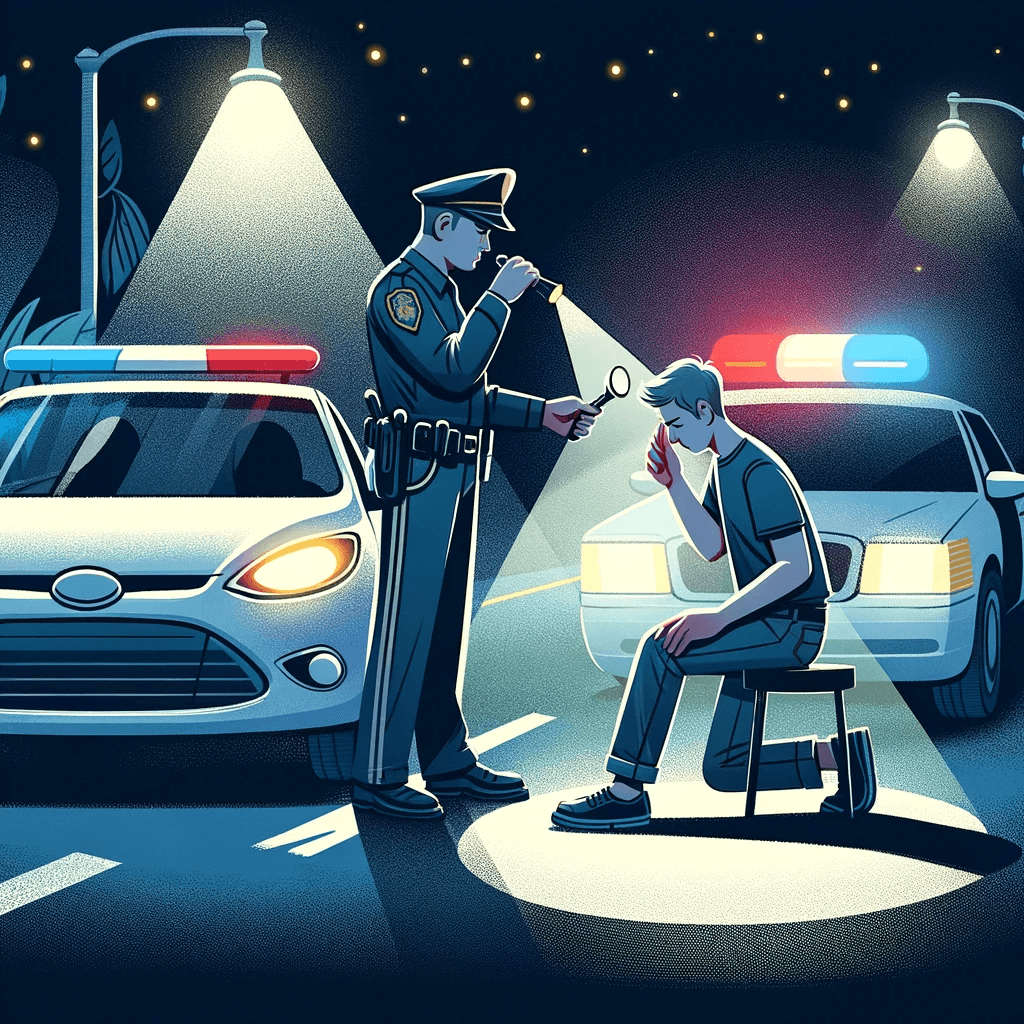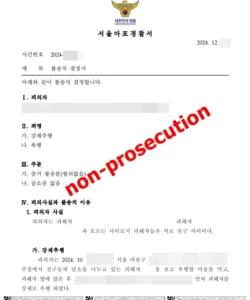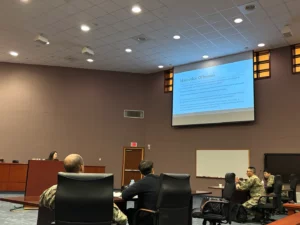Recently, the Korean government has increased the fines imposed on drunk driving offenses. For foreigners, the amount of legal fines they receive for a criminal offense may determine whether they will be allowed to maintain their status of stay in Korea or whether they will face deportation, which is why they need to be aware of the increased fines in relation to drunk driving, commonly known as DUI (driving under the influence).
In the past, the possibility of remaining in Korea after being caught for a DUI was quite high, but now, it will be more difficult to maintain your status of stay due to the higher fines. Especially in cases where a foreigner is a DUI repeat offender or has injured or even killed a person because of drunk driving, avoiding deportation will be very difficult, which is why receiving help from a DUI defense lawyer is essential.
1. Understanding DUI Charges in South Korea
Table of Contents
South Korea’s Strict Treatment of DUI Offenses
In Korea, having a blood alcohol content (BAC) of 0.03% or higher constitutes a DUI/drunk driving offense. In the wake of the case of Yoon Chang-ho, who died after being hit by an intoxicated driver in Busan in 2018, the traffic law was revised to enforce tougher DUI regulations by dropping the legal blood alcohol content limit from 0.05% to 0.03%.
Comparing this with the regulations in the United States or the UK, where a blood alcohol content below 0.08% does not yet constitute a DUI, the Korean standard is much stricter. Germany enforces Korea’s previous limit of 0.05%, and Japan shares Korea’s current limit of 0.03%.
Regardless of your nationality, you should be aware of the strict Korean DUI law since you are going to be subject to the same legal regulations as Koreans when you are caught driving while intoxicated in Korea. As a foreigner, however, you can face even bigger consequences, since the immigration office might order you to leave Korea depending on the level of punishment you have received for your DUI offense.
As a foreigner, being investigated by Korean police even just one time will automatically lead to a criminal investigation by the Korean immigration office. DUI cases are usually concluded with either a suspension of indictment, a fine, a suspended sentence, probation, or a prison sentence, and foreigners often mistakenly believe that if they did not receive a fine or penalty, they have not received a conviction or criminal record of the DUI, but it is not that simple.
Depending on the judgement or penalty you have received, your immigration examination will either result in a permission to stay or in a departure order. However, there have been cases where somebody received a suspended indictment and a fine of 1 million won and was still forced to leave the country, while others were allowed to continue their stay despite receiving a 10 million won fine.This reflects the fact that the result of the immigration examination is largely at the discretion of the immigration officials in charge, which is why hiring an experienced and skilled DUI defense lawyer plays an important role in avoiding deportation as a result of the examination.
For foreigners, the examination conducted by the immigration officers is often more tense and stressful than police investigations or court trials. Therefore, it is recommended to take proactive measures by finding a specialist DUI lawyer near you who can defend you against a possible deportation by thoroughly preparing a strong DUI defense strategy, rather than visiting the immigration office without any preparation.
DUI Case Laws and Legal Blood Alcohol Content (BAC) Limits
Penalties for DUI Offenses and Refusing a Sobriety/Breathalyzer Test
In Korea, refusing a police officer’s request to take a sobriety test is considered a criminal offense that is punishable by law. The crime of refusing a sobriety test in relation to drunk driving is subject to a prison sentence of more than 1 and up to 5 years, or a fine of more than 5 million won and up to 20 million won.
If you refuse to take a breathalyzer test because you are scared the police will discover that you drank alcohol before driving, you may actually face heavier penalties than you would for simply driving under the influence of alcohol.
Legal Penalty Standard for Drunk Driving Offenses in Korea
DUI Investigation and Arrest Procedures
If you refuse to take a breathalyzer test, if it not a first-time DUI offense, if you have a blood alcohol content of 0.2% or more, or if you caused an accident, the police can arrest you or demand that you accompany them to the police station on the grounds of a criminal offense.
If those above do not apply, the police would first check the driver’s personal information on the spot before sending them home. Then, a reasonable date would be set to carry out an investigation at the police station, at which point it is advisable to engage a specialist criminal attorney who can attend the proceedings with you.
Fines, Prison Terms, and Other Penalties for DUI in Korea Law
Criteria for DUI Arrests and a License Suspension/Revocation
| Arrest on Criminal Charges | Types of Charges | Person driving with BAC of 0.05% or higher |
| Arrest Criteria | Basic DUI Offense | – A person driving with a BAC of 0.365% or higher – A person who previously received a penalty for drunk driving at least 3 times, regardless of the BAC level – A person driving with a BAC of 0.26% or higher who concurrently drove without license, or received a penalty for drunk driving 2 times |
| Personal Injury Car Accident Case | – A person who drove with a BAC of 0.265% or higher, regardless of the treatment/recovery period, registered insurance, or any agreement with the victim – If there is a mutual agreement: A person who drove with a BAC of 0.15% or more, where the victim’s recovery takes at least 6 weeks (however, in the case of concurrent traffic signal violation, violation of installed signals, crosswalks, crossing of median line, and speeding: if the victim’s recovery takes at least 3 weeks) – If only insured: A person who drove with a BAC of 0.16% or more, where the victim’s recovery takes at least 3 weeks |
|
| Property Damage Car Accident Case | – A person driving with a BAC of 0.31% or higher who caused damage of at least 800,000 KRW | |
| Administrative Measures | BAC of 0.05%~0.09% | – 100 penalty points |
|
– When a person is injured or killed in a car accident in which the driver had a BAC of 0.05% or higher – driving with a BAC of 0.1% or higher – driving with a BAC of 0.05% or higher more than once, or refusing a sobriety test and driving with a BAC of 0.05% or higher |
– Revocation of driver’s license as well as ban from taking the driver’s license test for a period of 1 year |
Actual Level of Punishments
In Korea, if a driver has a blood alcohol concentration of 0.2% or more and causes a traffic accident where a victim dies, the court can sentence that person to up to life in prison. In practice, however, five to six years is the average level of punishment unless there is an element that justifies an aggravated punishment.
In the case of having injured another person in a drunk driving accident, the law allows a punishment of 1 year to 15 years in prison, but in practice, the offender would receive 1 year and 6 months to 3 years and 6 months in prison, and possibly around 5 years if the damages are significant.
When driving under the influence of alcohol, factors that can aggravate your punishment include driving over the median strip or hitting telephone poles, driving on highways or long distances, which all create high risk of road accidents, and lastly, refusing to take a breathalyzer test. The most serious traffic related offense is a so-called hit-and-run, where an offender flees the scene after causing an accident. The act of fleeing the scene, the failure to stay and assist after causing an accident, and hit-and-runs causing the injury or death of another person, are all separate offenses apart from drunk driving that are subject to criminal punishment.
If a person is injured by a hit-and-run, the offender may receive a fine of more than 5 million won and up to 30 million won or a prison term of more than one year. If the driver flees after killing the victim or if victim dies after the driver has already fled, the offender may be punished with life imprisonment or a minimum sentence of 5 years. And if there are aggravating factors such as intoxicated driving, the punishment will naturally be even harsher. On the other hand, if the accident was minor or if the victim officially expresses to the investigative authorities or court that he or she does not seek punishment, a fine of 3 million won to 15 million won may be sentenced.
DUI Consequences: Immigration Issues and Deportation Risk
According to Korea’s Immigration Control Act, if there are considerable reasons to acknowledge that foreigners residing in Korea may harm economic or social order or good customs, they can be ordered to leave the country or be deported.
Under Article 68 of the Immigration Control Act, those who have received departure orders but want to leave the country voluntarily at their own expense, those who fail to comply with the departure request, and those who have been ordered to leave the country after violating the Immigration Control Act are all subject to departure orders.
Also, foreigners who have been fined more than 3 million won for violating the criminal law, those with a combined fine of more than 5 million won accumulated within the last five years,
and those who have been fined more than twice within the last two years or more than three times within five years, are more likely to receive a departure order.
Drunk driving is the most common reason for which foreigners receive departure orders. Besides committing Road Traffic Act violations, if you violate the Act due to drunk driving and your fine is more than 5 million won, or if there is no agreement with the victim regarding any personal or physical damage caused by the accident even if the fine is less than 5 million won, or if you are fined for a hit-and-run and if there is no compensation made to the victim, you may be ordered to leave the country.
2. Our DUI Defense Lawyer’s Case Involving a Foreigner in Korea
Case Overview
The client, a British citizen, had been staying and working in Seoul, Korea for five years, when he was caught drunk driving by police who pulled him over on his way home after drinking alcohol with his colleagues. His blood alcohol concentration was at 0.161%, far exceeding the 0.08% limit for a revocation of his license.
He was about to have a police interview but learned from people around him that foreigners, who were caught for a DUI, experienced serious troubles in relation to departure orders, deportation, and visa extension. He had a family in Korea, who he was supporting financially, so he could not help but worry about a possible deportation that would cost him his job. He was eventually interviewed by the police, accompanied by our criminal defense lawyer from our firm in Seoul.
Lawfirm Lee & Lee’s Legal Defense Strategy for Drunk Driving Charges
Preparing for Investigation and DUI Trial Proceedings
In a DUI case, the Korean prosecution and the court determine the sentence by considering and judging the party’s “intention, alcohol level, past criminal records, and whether they drove on behalf of someone at the time of drinking.” To receive leniency, the statement must be objectively convincing, and to prove one’s trustworthiness, there must be consistency, which is why thorough preparation of a DUI defense strategy is crucial. Therefore, it is important to have a lawyer accompany you, starting from the police investigation stage to advise you on the police interview procedures as well as carefully observe the interrogation process.
After that, a strong defense strategy can be developed for the prosecution and DUI trial proceedings to conclude the case with minimal punishment or with a suspension of prosecution.
Korean Immigration’s Criminal Screening
In principle, foreigners residing in Korea who are subject to a criminal penalty of more than 3 million won for a violation of the Korean law are also subject to deportation. This is because the Immigration Control Act provides grounds for ordering or prohibiting people from leaving the country if there is reason to acknowledge that they commit acts which harm the interests and public safety of the Republic of Korea, its economic or social order, or good customs.
Due to this regulation, our criminal defense lawyer’s top priority was to minimize the fine our client would receive as a legal penalty. But even if you reduce the penalty to a minimum or are able to completely avoid it, there is an additional legal process that requires you to obtain permission to stay in Korea after passing a criminal screening by immigration.
Therefore, when appointing a criminal lawyer to prepare for and defend yourself against the criminal investigation and trial procedures, it is essential to engage a lawyer who is also experienced in immigration cases and immigration defense for foreigners. In case you receive a departure order or deportation order as a result of the immigration examination, it is necessary to prepare in advance how to effectively respond and object to the decision by filing a lawsuit to have appeal against the order or have it revoked.
In our client’s case, the DUI criminal defense lawyers at Lee & Lee argued that:
– The suspect could not avoid drinking with his colleagues since it was an extension of the company’s work. Additionally, he was in the process of moving a parked car when he was caught driving under the influence, and with a 2km distance, this cannot be considered a long-distance drive.
– Moreover, no one was injured nor was there any property damage, and the suspect had no prior criminal record. Still, if he were to receive a fine of more than 3 million won, he would likely be deported, and considering the fact that he makes a living in Korea and is also the sole breadwinner of his family, even if he would receive the same punishment as a Korean, the actual consequences of such punishment would be much more severe.
– Finally, the suspect has appointed a lawyer from the start of the investigation to acknowledge his fault and expressed his sincere intent to reflect on his actions.
These and additional facts have been emphasized by our attorney, who actively assisted the client starting from the initial investigation by submitting a lawyer’s letter of opinion including a petition and related materials.
In the end, the Korean prosecution decided not to prosecute our client, and eventually our client was permitted to stay in Korea with his family without any further issues.
3. Conclusion
If you are caught and convicted of a DUI, you can be fined or even sentenced to prison. Therefore, it is crucial to act quickly and deal with it from the early stages, otherwise it can become very difficult to achieve a positive conclusion of the case.
In the case of a DUI, you can still receive a departure order even if your punishment is lighter than that of other criminal offenses. Especially if you have been previously punished for a school zone accident, a property damage accident, an accident causing injury or death to a person, or other road traffic law violations, you are more likely to be deported, and you may have to prepare for a lawsuit to appeal your deportation.
If you are a foreigner who has committed a DUI offense in Korea, I recommend that you respond by acquiring the assistance of a lawyer from the moment of the incident in order to mitigate the consequences such as legal penalties and immigration issues.
4. Korean DUI Law (FAQ)
Q1. What is the legal blood alcohol concentration (BAC) limit that determines a DUI in Korea?
A1. The legal BAC limit for drivers in Korea is 0.03%. Exceeding this limit constitutes a DUI according to Korean Law and can lead to arrests and DUI charges. It is important to always be aware of local DUI laws, especially the strict BAC standards.
Q2. Question: How do I respond when being pulled over at a DUI stop in Korea?
A2. If you are stopped by police for a DUI in Korea, you should remain calm and cooperative. It is advisable to follow the police instructions while being aware of your right to remain silent and to appoint a lawyer. As a foreigner, your rights within a DUI offense also include requesting assistance from your respective consulate.
Q3. Can I refuse a breathalyzer test in Korea?
A3. No. If it is requested by the Korean police, you are legally required to take a breathalyzer test, and refusing to do so could result in more serious penalties under the Korean DUI Act.
Q4. How long is the legal process of a DUI case in Korea?
A4. Averagely, it takes at least three months to a year. This stems from the fact that there are often various other violations intertwined with a DUI incident, leading to additional charges.
Since drunk driving involves road traffic and accidents, it is often accompanied by violations of the Korean Road Traffic Act such as traffic light or lane violations. Other possible additional charges are violations committed under the Special Traffic Act by failing to stop and assist after an accident, which includes hit and runs and causing injury or death by dangerous driving.
Therefore, the average duration of a DUI case is difficult to estimate and varies a lot depending on the complexity of the case and the schedule of the court.
Q5. Can I appeal a DUI conviction in South Korea?
A5. Yes, you can appeal against a DUI conviction in South Korea. Since an appeal involves legal procedures, such as submitting your case to a higher court for review, obtaining legal advice and assistance from a DUI defense lawyer is advisable in order to effectively navigate the appeal process.
Q6. How does a DUI offense affect my visa status in Korea?
A6. If you have received a fine of more than 3 million KRW for drunk driving in Korea, the Korean immigration office may order your deportation. Therefore, being charged with drunk driving can have a serious effect on your visa status, leading to a visa cancellation or a refusal to extend it.




